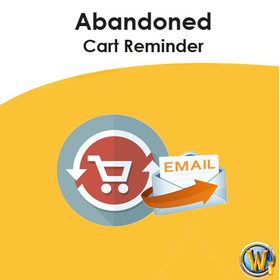CS-Cart: What Is Layaway - Pros & Cons


To fight the slump, stores have pulled out all the stops, including reviving their old layaway plans. Layaway is one gift-buying option, but it isn’t always the best option. Every layaway program has pros and cons you must consider before signing on the dotted line.
What Is Layaway?
Layaway works differently than shopping with credit cards or using installment billing plans. With layaway you make payments over time, but your purchases stay in the store until you finish paying for them.
While every store has their own rules, most layaway programs follow the same four basic process:
- • You pick out the items you want to put on layaway. Many stores only offer layaway for items in certain departments, such as jewelry or electronics.
- • You make a down payment. The down payment varies by store. Some stores let you choose the amount, while others charge an amount based on your total purchase price.
- • You make small payments over time. You can make weekly, biweekly, or even monthly payments, depending on the store’s policy.
- • Once you pay off the total purchase price plus any layaway fees, you can pick up your items.
The seemingly straightforward process has a myriad of complicated fees. While every store has a slightly different policy, stores charge some or all of these fees:
- • Service Fee. The service fee covers the store’s cost of processing multiple payments and keeping the items off the shelves. The service fee typically ranges from $5 to $10.
- • Cancellation Fee. Most stores charge a cancellation fee if you decide to cancel your layaway plan, or if you cannot make all the payments by the due date.
- • Restocking Fee. Some stores charge a restocking fee if you do not make your payments on time, or do not finish paying for your products by the due date.
Pros of Layaway Plans
Compared to other methods of financing purchases, layaway can be your best option for the following reasons:
Interest-Free Purchasing
While layaway does come with fees, you won’t be charged interest on your purchases. Even with the fees, layaway may cost less than charging your holiday purchases to a credit card.
More Buying Options
Layaway provides an alternative to using a credit card to pay for purchases. If you do not have a credit card and don’t wish to acquire a store card, layaway provides another method to pay for purchases over time. If you have a credit card but would like to make it through the holidays without charging all of your gifts, layaway may be the best option for you.
Availability of High-Demand Items
Layaway comes in handy during the busy holiday season when popular electronics and toys can sell out quickly. Putting a popular item on layaway now guarantees you will have it for the holidays.
Available Online
Some retailers offer layaway for purchases made through their online stores. Online layaway saves you the hassle of dealing with holiday shoppers, waiting in long lines, or going to several stores looking for a popular item.
Easy Acceptance Criteria
Unlike a credit card, layaway programs do not conduct income or credit checks before approval. To qualify for layaway you simply need proof of identification showing that you are at least 18 years of age and a down payment. Since acceptance policies are generally pretty relaxed, even people with past credit problems can qualify for a layaway program.
Cons of Layaway
Layaway offers convenience and gives you another option for buying your holiday gifts. Unfortunately, the news isn’t all good – layaway has several disadvantages you also need to consider:
Fees
Layaway fees can be exorbitant, especially for smaller purchases. For example, paying a $10 service fee on a $600 laptop may be acceptable, but paying a $10 service fee for a $50 toaster means adding a preposterous 20% to the total cost. Unless you’re worried about a hot ticket item selling out before the holidays, wait until you have the cash to buy smaller items to avoid service fees.
Down Payments
Unlike a credit card, most layaway programs require that you pay a down payment before the store will hold your purchases. Down payment amounts vary by store, but some stores can charge up to 10%, a sizable fee for big-ticket items.
Strict Payment Terms
Many layaway programs come with strict payment terms. For example, one retailer may require you to make a payment in-store every two weeks until you pay off the purchases. Under these terms, you’ll have to drive to the store every other week to make a small payment.
Other policies may allow you to pay on your own schedule, but require that you make your final payment by a certain date. If you miss that date, you risk losing the items. When you put something on layaway, you have to deal with the retailer for several weeks.
Potential Losses
People enter into layaway programs with the best of intentions, but things happen. You may pay off half of your purchase, but then realize you cannot pay for it entirely. Or you might realize that you no longer want the item after making payments for several weeks.
You will not lose the money you paid if you do not complete your layaway agreement, but you will have to pay more fees. Most stores charge a cancellation fee for unhonored or canceled layaway agreements, and some stores charge an additional restocking fee to put the items back on the shelves.
Not Available for Every Purchase
Retailers typically put a limit on the type of purchases you can place on layaway. For example, a retailer may only offer layaway for electronics, jewelry, or other big-ticket items, but if you want to use layaway to pay for a popular toy, you may have to go to another retailer.
Other stores may place a minimum dollar limit on their layaway program. In this case, you would not be allowed to put any individual item with a price tag beneath the limit on layaway, even if your total purchase was over the limit.
Final Word
If you need to finance a few of your holiday gifts this year but do not qualify for a credit card or in-store financing, layaway is a great option. The program also works if you want to try to avoid racking up more credit card debt this holiday season.
However, before you put any purchases on layaway, look at your budget and make sure you can cover the full cost of the purchases by the due date. If you cannot make timely payments, the store will charge you fees. They may also cancel your layaway program, keeping your purchases – and your money.
While layaway is a good option to pay for a pricey gift, you can often find a better deal shopping at holiday sales or looking for gently used items. For example, you can find many good deals on Black Friday and Cyber Monday.
source: moneycrashers.com
Share
Article related products
Categories
Recent articles
Archives
You may be interested in




